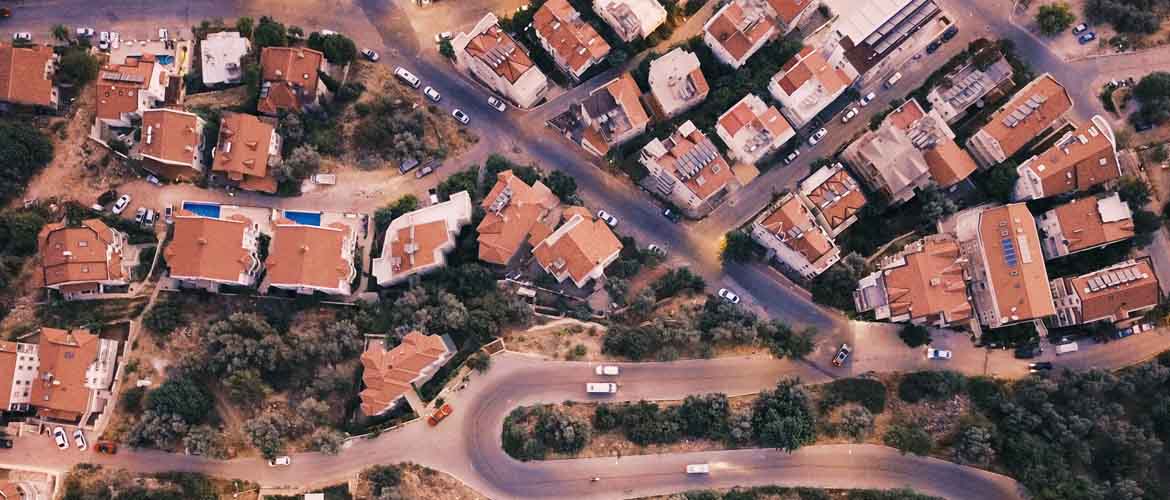A Method to Resolve Disputes
There’s more to blockchain than people think. A blockchain expert believes that it can help developing countries resolve major issues such as land disputes. This article was first published in the second issue of WIEF In Focus magazine.
Since the beginning of the blockchain surge, more people are trying to understand how to better utilise this technology. The potential of this public ledger is huge. It’s just a matter of time before these advances change the way things are managed.
According to Larry Christopher Bates, blockchain can help solve problems faced by developing countries. Larry is the CEO and president of Bitland, which is a development platform that aims to show how technology can develop the future of the country. He believes that issues of land settlements and disputes can be managed better with blockchain technology – by overcoming transparency problems with its public ledger.
In Africa, 90 per cent of the rural lands are undocumented or unregistered, according to the World Bank. This makes land ownership processes a tireless struggle, maintaining a persistent gap between the rich and poor communities. This situation, however, could see a shift in the coming decade. With 202 hectares of land, and about half of the world’s total uncultivated and fertile land, Africa has the potential to do much more, if managed well.
At the core of the problem of land disputes is proving the chain of custody, and blockchain can do just that. Larry explains that, through any transaction history on blockchain, any title or property exchange that happens will have an irreversible record that will have gone through proper channels to ensure that the original information was valid.
However, this only applies to disputes that occur on-chain. Blockchain technology can do absolutely nothing to settle land disputes that occur off-chain. ‘In the case that a dispute occurs over an on-chain property, the immutable record will provide irrefutable evidence as to the proper owner or tenant, and effectively makes the ownership “undisputable”,’ Larry explains.
Misconceptions
Bitland was founded by Narigamba Mwinsuubo in Kumasi, Ghana, in 2014. The idea rose out of the most extreme living conditions. Due to concern over the lack of infrastructure and electricity, Narigamba saw that blockchain could promise an end to corruption. Narigamba had set out to solve gaping holes in bitcoin’s practical implementation by the bitcoin network with Bitland. ‘Experts within the bitcoin community didn’t understand certain complexities and pushed the misinformation that bitcoin could solve all the problems facing under-represented populations,’ says Larry.
Narigamba then formulated a protocol to create the Bitland project. ‘The protocol was specifically created only for recording monetary transactions. Anyone that says bitcoin is necessary for any of this is either misinformed or misinforming intentionally,’ he explained.
Laws of the Land
While every country has different laws, the decentralised community of blockchain has simplified many aspects. ‘It positions itself as a solution to every centralised industry,’ says Larry. In the case of Bitland, it can only put land titles on a blockchain that are recognised by the local government. ‘Anyone can put a property on a blockchain, but whether the local government recognises that blockchain as a valid registry is what’s important,’ Larry explains.
Bitland has been working to connect with federal governments around the world to make the case for establishing blockchain based land registries as a government utility. According to Larry, in cases where that’s not possible, Bitland operates as a real estate company that digitises titles in the process of selling. This way, the digital registry can be created in areas where the government doesn’t recognise blockchain technology, while simultaneously creating an immutable record that is compliant with the local real estate laws.
At this stage of the process, Bitland agents will get involved with handling the data input in order to ensure the integrity of what is being entered. ‘As the protocol becomes more robust, the individual property owners will be able to upload their own documents to be registered. Government officials will then also have a tool to verify the accuracy of the data. A third party represents the mutual interests of the people and the government to oversee the transaction,’ Larry explains.
While security has always been an issue with technology, blockchain experts say ensuring security and accuracy is one of the biggest benefits of blockchain technology.
Its decentralised nature of data management establishes a network that an individual actor can’t overturn an entry in the blockchain. This creates dedicated access control points to determine exactly which official is approving or denying requests, which isolates suspicious or corrupt acts within the system. If a corrupt attempt disrupts the network, the time, access point and user who attempts the act gets isolated.
How it Helps
Generally, investors and developers seeking to work with underdeveloped countries on any project, can face many challenges including the lack of transparency in certain processes and transactions. ‘Blockchain as a supply chain tracker can accelerate this development for various reasons,’ Larry assures. ‘The supply chain can be tracked end to end, which reduces the risks associated with investing in underdeveloped countries. It becomes much more difficult to add unjustified purchases when the supply chain is transparent.’ In certain underdeveloped countries, where NGO projects have failed to be executed due to lack of transparency, blockchain can also help.
‘Blockchain is nothing more than an immutable database, it’s a tool,’ Larry says. Blockchain can be used for good and bad purposes but it’s up to the people to find the roots of major social problems and find ways to solve them. Blockchain technology, alone, can’t solve problems and it’ll take a concerted effort between private sectors and regulators to actually solve any problem.
___________________
Photo by Ahmet Sali on Unsplash
For more on the latest topics related to business, technology, finance and more, read our digital versions of In Focus magazine, issue 1, issue 2 and issue 3.





